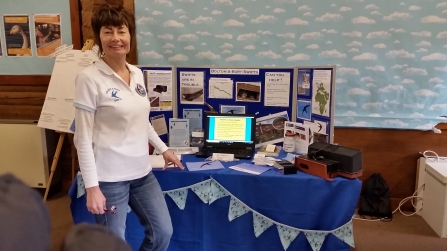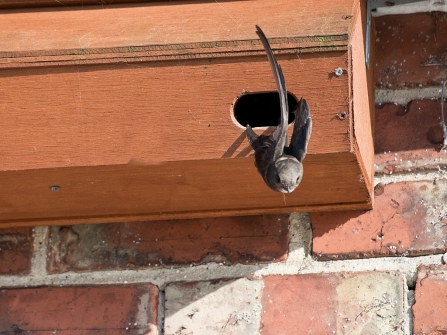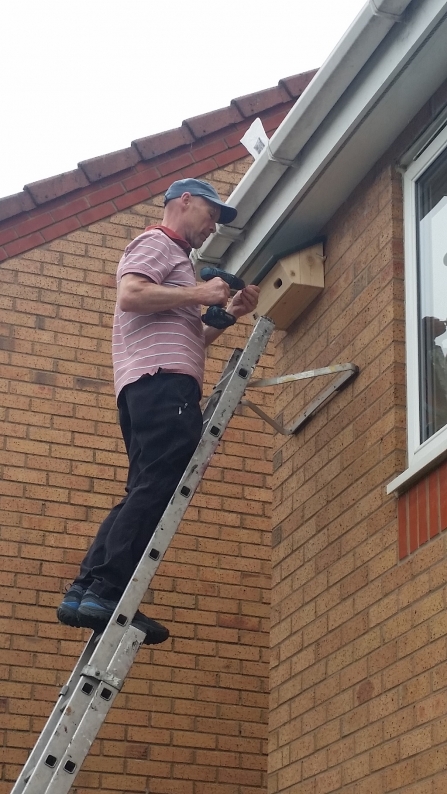Swifts are on the Amber List of endangered birds in the UK, having halved in population in the last 20 years. Louise Bentley is the leading light in the Bolton & Bury Swifts Group (BBSG) which is very active locally in helping this bird survive and thrive as a wonderful feature of our summer skies. BBSG is a member of the Bolton Forum for Greenspace (BFG), and Louise met with me recently to tell us about her work and how she became such a champion for these special birds.
Louise set up the Bolton & Bury Swifts conservation project about three years ago, very much supported by her husband Jim.
“I had become aware of the plight of swifts who are the ultimate urban bird,” said Louise. “Living in Bolton, it is a very dense urban area and the thing with swifts is they nest in colonies in the eaves of houses. Many moons ago they used to nest in woodpecker holes in ancient woodland. We cleared much of our woodland so the swifts moved into our homes - stone buildings, thatched roofs and into the more modern eaves spaces. The big problem is the way we now make completely sealed new-builds and the way we are renovating our existing buildings and putting UPVC on, which totally blocks them from accessing their nest space."
Louise has always been a lover of animals and the natural world and was brought up just seven miles outside Manchester in Whitefield. One of her earliest memories gives a clue to Louise’s commitment to bird conservation now.
“A sparrow fell out of its nest at the side of our house and we had to get the neighbour’s ladders to put it back up, but it fell out again because it couldn’t fly and then had to be hand-reared by another neighbour. Sadly it died because he couldn’t feed it the live worms, but I am very willing to do that for my swifts now, feeding them the live insects that they need to survive”.




